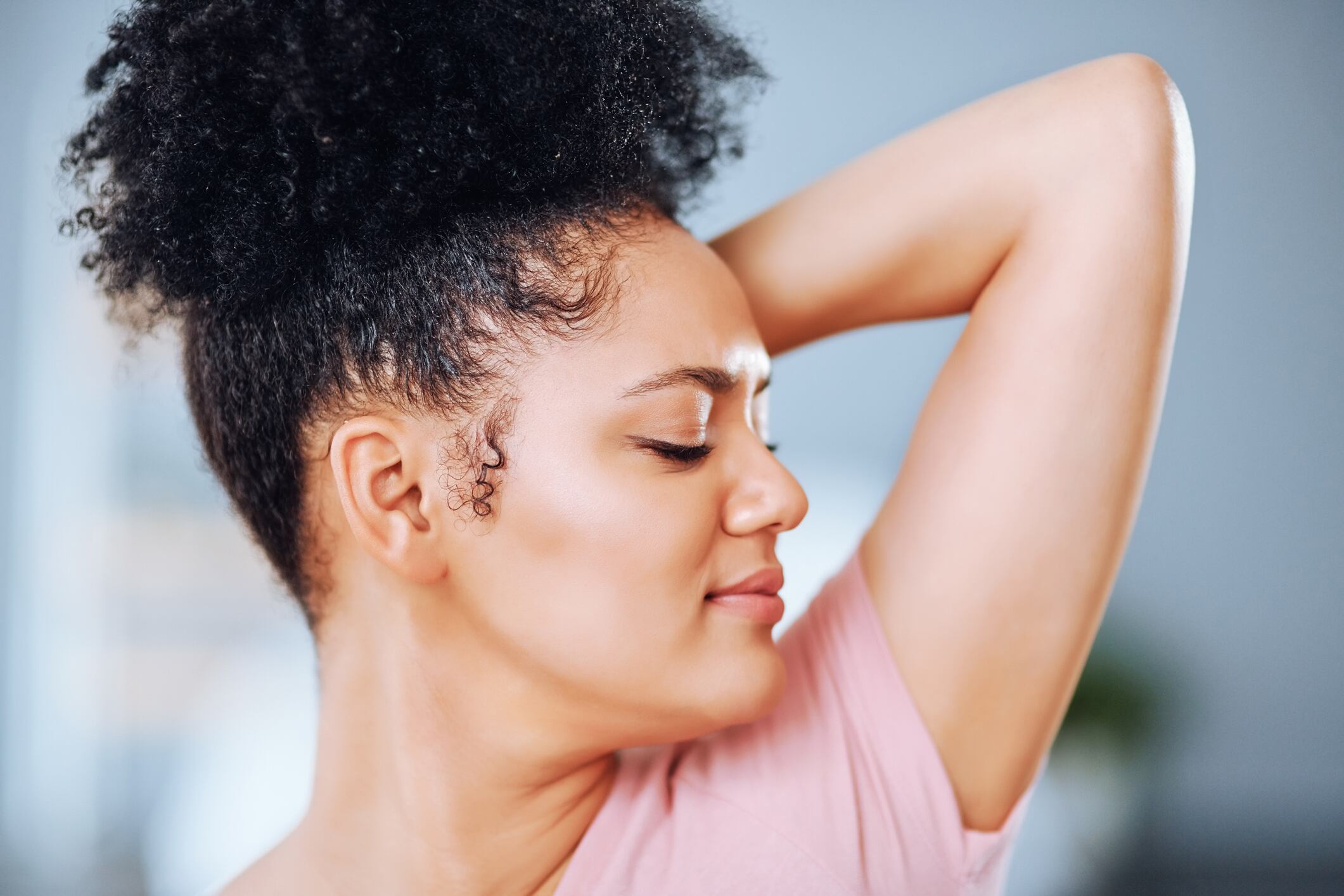Colgate-Palmolive already uses butyloctanol in its Sanex BiomeProtect range of deodorant products, with the new study providing the scientific substantiation for the ingredient's efficacy.
Data from in vitro and in vivo studies indicated that 2-butyloctanol inhibited odor-causing Corynebacterium while boosting skin-friendly Staphylococcus.
“[2-butyloctanol] had a potential prebiotic effect on the human underarm microbiome, which was shown for the first time both in vitro and in vivo,” wrote scientists from Colgate-Palmolive’s Technology Center in Piscataway, NJ in the International Journal of Cosmetic Science. “This study indicated that BO might be used as a potential prebiotic ingredient in personal care products for underarm microbiome protection and potential odor control with prolonged product usage.”
The armpit microbiota
The human armpit – or axilla in scientific speak - is home to a wide range of microorganisms that contribute to the production of body odor. Specifically, research has shown that the most common species on our skin are Staphylococcus bacteria, such as S. epidermidis, which has been reported to produce antimicrobial peptides and protect against colonization by potentially pathogenic microbes.
On the other hand, corynebacteria are reported to the main source of underarm odor. Indeed, “only coryneforms lead to pungent, apocrine odor,” explained the Colgate-Palmolive scientists.
“Traditional antiperspirant/deodorant products are used to reduce perspiration in the axillary region and to treat or prevent the growth of bacteria in this region, thereby reducing or eliminating body odor,” they added. “However, they may also compromise the axillary microbiome balance. The personal care industry has been seeking new ingredients, such as prebiotics or probiotics, to maintain a healthy balance of the skin microbiome by inhibiting odor-causing bacteria while maintaining and promoting the growth of good bacteria.”
For the new study, the scientists focused on 2-butyloctanol, a fatty alcohol found in plants like hops, purslane, and safflower.
Study details
To start off, the researchers performed some in vitro tests of different levels of 2-butyloctanol with Staphylococcus epidermidis (ATCC 12228) and Corynebacterium striatum (ATCC 1293), and found that fatty alcohol concentrations of 0.6%, 2.6%, and 5.1% significantly inhibited the growth of corynebacterial. The same concentrations were found to main the growth of S. epidermidis.
Next, a small clinical trial with 12 people was performed which used a daily emulsion-based roll-on deodorant with or without 3% 2-butyloctanol for four weeks. Underarms were swabbed at the start of the study (which was preceded by a two-week period during which the participants did not use any underarm products) and again at the end of the study and analyzed using quantitative real-time polymerase chain reaction (qPCR) and high-throughput 16S rRNA gene sequencing.
The results of the clinical trial showed that the 2-butyloctanol deodorant was associated with significant reductions in the relative abundance of corynebacterial, while Staphylococcus relative abundance was increased. In addition, the ratio of Staphylococcus to corynebacteria also increased over four weeks of daily application.
“For the first time, it was demonstrated that 2-butyloctanol had a potential prebiotic effect on the human underarm microbiome in inhibiting odor-causing Corynebacterium while maintaining and promoting skin-friendly Staphylococcus in both in vitro and in vivo studies,” wrote the researchers. “Therefore, 2-butyloctanol could be used as a potential prebiotic ingredient in personal care products for underarm microbiome protection.”
The researchers added that future studies should focus on the relevance of the reduction of malodor formation when using prebiotic 2-butyloctanol in a deodorant product.
Skin Microbiome: Next-Gen Innovation and Science
Interesting in more insight on the latest science and developments in the skin microbiome category? Registration is now open for CosmeticsDesign's upcoming Skin Microbiome: Next-Gen Innovation and Science webinar on September 28.
Source: International Journal of Cosmetic Science
Published online ahead of print, doi: 10.1111/ics.12738
“The potential prebiotic effect of 2-Butyloctanol on the human axillary microbiome”
Authors: M. Li, et al.



